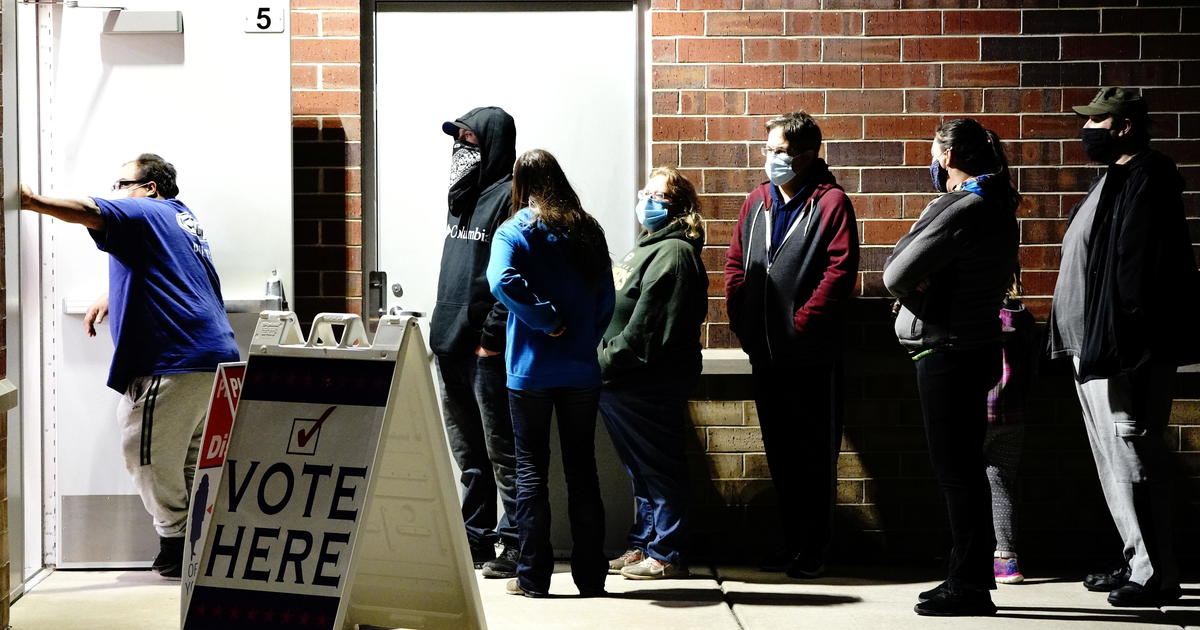With 99% of the state’s votes counted, CBS News has projected Joe Biden will win Wisconsin. But even before news outlets projected Biden as the winner, the Trump campaign vowed to “immediately” request a recount in the state.
Because the state’s counties have not certified their vote totals, Mr. Trump cannot yet ask for a recount. But if Mr. Trump does eventually request one, here’s how it would work:
How are votes in Wisconsin counted?
When the polls close on Election Day and all the ballots have been fed into the voting equipment, poll workers hold a public meeting in which the voting equipment prints a results tape, which is read aloud to announce the vote totals for that polling place.
Some cities, villages and towns count their absentee ballots alongside ballots that were filled out at a polling place, the state’s election commission said. Others have chosen to process absentee ballots at central count facilities, where election inspectors review return envelopes for required information before recording them in the poll book.
The counties then must certify the official results. Each county has a board of canvassers, made up of the county clerk and two other people, that meet publicly before reporting official results by November 17, according to the commission.
Once the counties have certified their results, candidates can request a recount. If no recount is requested or once the recount is resolved, commission staff rechecks county numbers. That includes an audit of 5% of the voting equipment used to tally votes, during which municipal clerks in those jurisdictions must hand count all paper ballots twice to ensure they match the voting equipment’s totals, the commission said.
Once that is complete, the commission reports the state’s official results no later than December 1.
Can Trump request a recount?
There is no automatic recount, even if the unofficial results are extremely close — a candidate must request one. According to the state’s manual outlining the process, candidates can request a recount if they are within the 1% margin of victory. Biden currently has a lead of just 0.6 percentage points with 99% of votes tallied.
The request must be filed no later than 5 p.m. on the first business day following the day the commission receives the last county’s certified results. It cannot be filed before the initial counting is complete.
How does a recount work?
The recount begins no earlier than 9 a.m. the day after all candidates are notified and no later than 9 a.m. on the day after the last day to file a recount petition.
The recount is conducted by the canvassing boards that determined the original election results. For federal elections, that’s the county board of canvassers. During the recount, which is open to the public, the board of canvassers can decide to hand-count or use voting equipment to tabulate ballots, unless a court orders otherwise.
The board of canvassers job is to recount the votes and correct any errors that were made when results were first reported. They can also submit subpoenas and compel witnesses or documents for the recount. Counties are given a detailed checklist of how to conduct the recount.
Jill Stein requested a recount in the state during the 2016 election. It did little to change the outcome, as Mr. Trump added just 131 votes to his margin of victory over Hillary Clinton.
The recount cost Stein $3.5 million, and a recount from the Trump campaign is expected to have a similar price tag. Candidates only have to pay for the recount when the margin in the race is 0.26%-1%. If a candidate wins the recount challenge, the filing fee is refunded.
Trump Campaign Manager Bill Stepien said the campaign was asking for a recount because “there have been reports of irregularities in several Wisconsin counties which raise serious doubts about the validity of the results.”
Wisconsin Elections Commission Administrator Meagan Wolfe defended clerks and election workers in a briefing with reporters.
“I think that it’s insulting to our local election officials to say that yesterday’s election was anything but an incredible success that was the result of years of preparation and meticulously, carefully following the law,” Wolfe said. “There are no dark corners or locked doors in elections.”
Melissa Quinn, Adam Brewster and Cara Korte contributed to this report.
